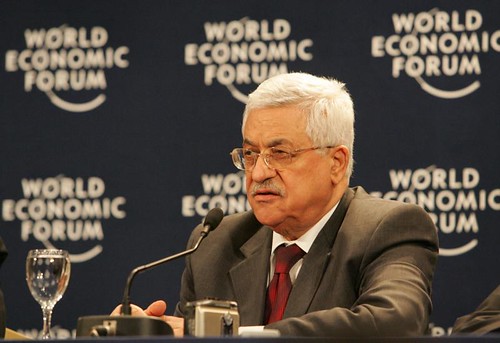The images in our articles may not match the content exactly. They are used to grab your attention, not to show the exact details in the text. The images complement the text but do not replace it.
Mahmoud Abbas, also known as Abu Mazen, is a prominent figure in Palestinian politics, having served as the President of the Palestinian Authority since 2005. His role in shaping the political landscape of the region has been both remarkable and controversial. In this article, we will delve into 15 fascinating facts about Mahmoud Abbas, shedding light on his life, career, and contributions to the Israeli-Palestinian conflict.
Exploring the Early Life and Career of Mahmoud Abbas
- Birthplace: Abbas was born on March 26, 1935, in Safed, Mandatory Palestine, an area with a history of conflicts and political tensions.
- Fatah Membership: He is a member of the Fatah political party, actively involved in Palestinian politics since the 1950s.
- Educational Background: Prior to his political career, Abbas obtained a Ph.D. in History from Moscow State University, shaping his perspectives and decisions.
Mahmoud Abbas’s Political and Diplomatic Endeavors
- Presidency: Abbas served as the President of the Palestinian Authority, succeeding Yasser Arafat and playing a significant role in Palestinian politics.
- Oslo Accords: He played a key role in negotiating the Oslo Accords, aiming to establish peace between Israel and the Palestine Liberation Organization.
- Advocacy for Peace: Abbas has advocated for a two-state solution to the Israeli-Palestinian conflict, emphasizing the importance of coexistence.
Impact and Challenges in Palestinian Politics
- Chairmanship of PLO: In addition to his presidency, Abbas has been the Chairman of the Palestine Liberation Organization, representing Palestinian interests.
- Peace Negotiations: He has been actively involved in peace negotiations with Israel, facing challenges but remaining committed to peaceful resolutions.
- Diplomatic Skills: Abbas has been praised for his diplomatic approach, engaging with international leaders to represent the Palestinian cause.
Criticisms and Controversies Surrounding Mahmoud Abbas
- Internal Politics: Despite his leadership, Abbas has faced criticism for his handling of internal Palestinian politics, posing obstacles to his goals.
- Israeli Settlements: He has been a vocal critic of Israeli settlement expansion in Palestinian territories, viewing them as hindrances to a two-state solution.
- Condemnation of Violence: Abbas has consistently called for an end to violence and terrorism, advocating for peaceful resolutions to conflicts.
Reflecting on Mahmoud Abbas’s Legacy and Future
- International Recognition: Abbas has fostered relationships with other nations, seeking support for Palestinian statehood and recognition worldwide.
- Historical Gesture: In 1993, he participated in a historic handshake with Israeli President Shimon Peres, symbolizing hope for peace in the region.
- Ongoing Influence: Abbas continues to be a prominent figure in Palestinian politics, with his commitment to peace and negotiations shaping his legacy.
Conclusion
Mahmoud Abbas’s journey as a Palestinian leader has been fascinating, showcasing his dedication to peace and statehood. Despite facing criticisms and challenges, Abbas’s contributions to Palestinian politics and his efforts towards peaceful resolutions have left a lasting impact on the region. As the complexities of the Israeli-Palestinian conflict persist, Abbas’s role and influence will undoubtedly be a subject of ongoing examination.
FAQs
Who is Mahmoud Abbas?
Mahmoud Abbas is a Palestinian politician who serves as the President of the Palestinian Authority and is known for his advocacy for peace in the Israeli-Palestinian conflict.
What is Abbas’s stance on the conflict?
Abbas has been a proponent of a two-state solution, advocating for the establishment of an independent Palestinian state alongside Israel.
How long has Abbas been in power?
Abbas has held the position of President of the Palestinian Authority since 2005, succeeding Yasser Arafat.
What are Abbas’s key achievements?
Abbas has secured non-member observer state status for Palestine at the United Nations and played a significant role in peace negotiations such as the Oslo Accords.
How has Abbas been received internationally?
Abbas has received mixed reviews internationally, with some praising his commitment to peace and others criticizing his progress in resolving the conflict.
What is Abbas’s stance on terrorism?
Abbas has consistently condemned terrorism and violence, advocating for peaceful negotiations and resolutions to conflicts.
Understanding the complexities of Mahmoud Abbas’s life and career provides valuable insights into the challenges and aspirations of the Palestinian people. As his legacy continues to evolve, Abbas remains a central figure in the ongoing pursuit of peace and statehood in the Middle East.






